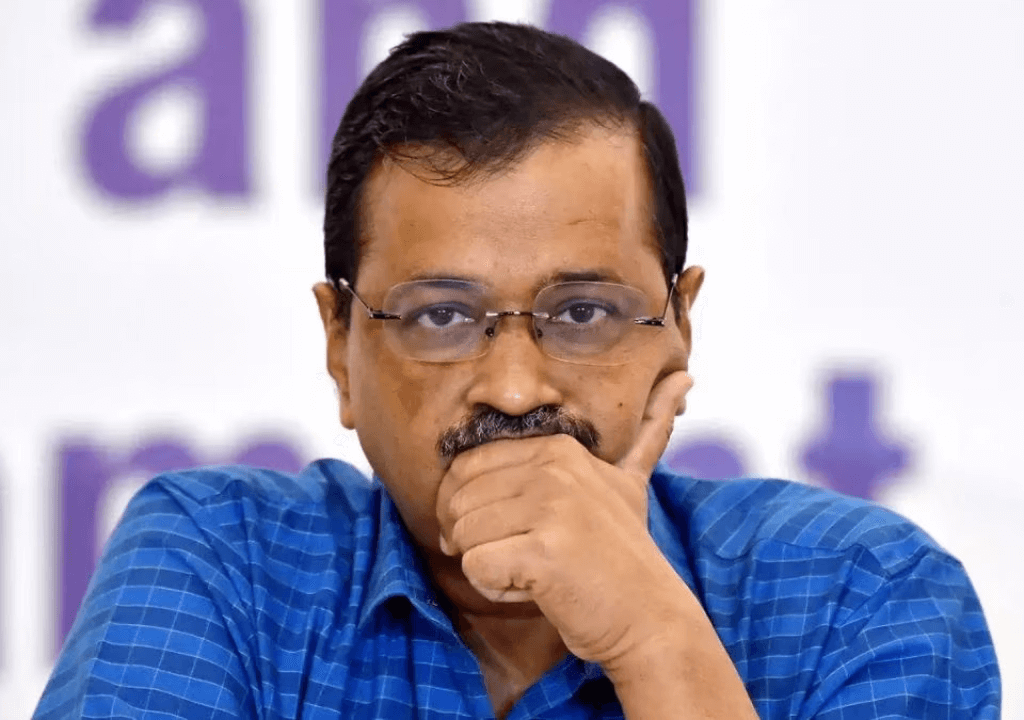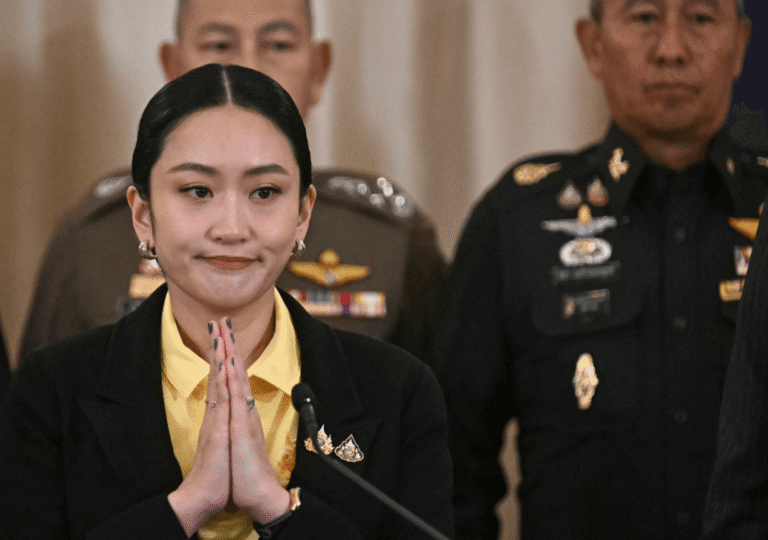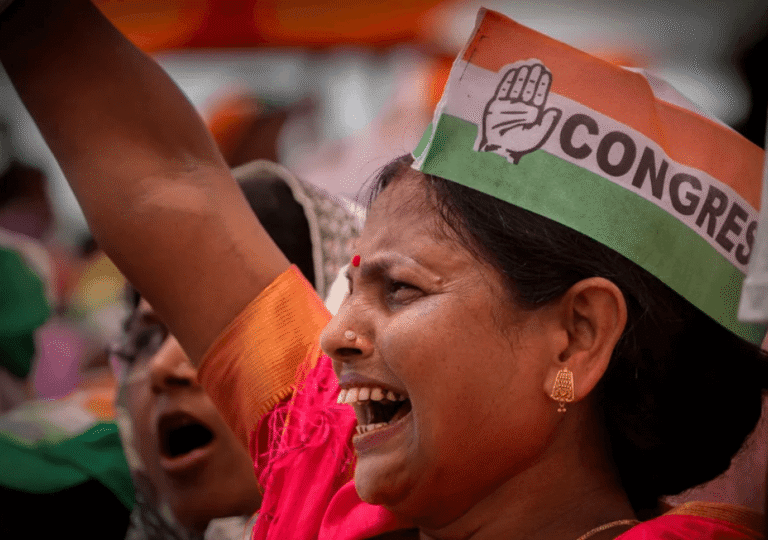The journey of the Aam Aadmi Party is approaching a pivotal moment as it becomes entangled in a wave of corruption charges, a significant departure from its core values of anti-corruption. Numerous party leaders, including its convener and Delhi Chief Minister Arvind Kejriwal, as well as Deputy Chief Minister Manish Sisodia, have been implicated in a case related to the establishment of liquor policies. It is anticipated that several other members of the party will follow.
The Aam Aadmi Party represented a noteworthy political experiment in India. Unlike traditional parties, it consciously avoided affiliations based on caste or religion and remained independent of entanglements with existing political factions. Despite these challenges, within just a decade of its inception, the AAP emerged as a remarkably successful political entity.
Arising from the wave of extensive anti-corruption protests and strikes in 2011, triggered by revelations of unprecedented financial misconduct and corruption within the previous Congress-led UPA government, the Aam Aadmi Party forged its identity by eschewing alliances with entrenched political forces in India. Nevertheless, under the adept leadership of Arvind Kejriwal, they rapidly ascended to authority, assuming governance over the National Capital Territory of Delhi within a mere two years. Their electoral acumen was palpable, as they nearly captured all assembly seats in the 2015 elections.
Their implementation of initiatives like Mohalla clinics, the enhancement of healthcare and education systems, and interventions to alleviate utility costs garnered broad support from the populace. Staying true to their name, they embodied the aspirations of the common people within their domain. Their political reach expanded beyond Delhi, notably securing a majority in the Punjab State Assembly in 2022, triumphing over long-established political heavyweights like the Indian National Congress and the Bhartiya Janata Party.
Extending their impact beyond their initial strongholds, the Aam Aadmi Party (AAP), broadened their reach to encompass states like Haryana, Goa, and Gujarat. This journey was rewarded with National party status by the Election commission of India in 2023.
However, the arrest of Aam Aadmi Party leaders on corruption charges delivers a substantial setback to the party, which has aimed to leave a more significant imprint on the Indian political scene. By forming alliances with the Indian National Congress, once a foe, in various states, the party presented a formidable challenge to the ruling BJP, thus posing a threat to its supremacy in the 2024 Lok Sabha Election.
While the alleged corruption scandal may appear relatively minor compared to other major scams like the election bond scam, it is anticipated to affect Kejriwal and the AAP’s standing in the electoral arena. Allegations suggest that party leaders received bribes in exchange for crafting liquor policies favorable to certain vested interests. Despite repeated summonses from the Enforcement Directorate, Chief Minister Arvind Kejriwal was arrested on 21st March 2024, after the Delhi High Court dismissed his anticipatory bail plea in connection with the money laundering case related to Delhi’s liquor policies. This marks the unprecedented arrest of a sitting chief minister in Indian history.
Although expectations of securing only a modest number of seats, possibly ranging from 10 to 20, in the upcoming general elections, Kejriwal’s influence in Indian urban centers remains substantial. The party’s robust presence in cyberspace further amplifies its significance. Consequently, the arrest is viewed as a deliberate attempt to sideline the AAP from Indian politics, especially as Modi’s government seeks a third consecutive term.
The arrest of AAP leaders, particularly Arvind Kejriwal, has been utilized by the AAP as a platform to rally against the BJP and foster unity among opposition parties. In a strongly worded statement released on X, the AAP proclaimed, “The time has come for a complete revolution. The despotic regime that is trampling upon the nation must be overthrown”. The party promptly sought recourse from the Supreme Court to contest Kejriwal’s arrest.
Atishi Singh, a minister in Delhi government, and possible political successor of Kejariwal, condemned the arrest as a “Conspiracy by the BJP and Prime Minister Narendra Modi”. She stressed, “Mr. Kejriwal is not just an individual; he embodies an idea. If you think that arresting one Kejriwal can extinguish this idea, you are mistaken”.
The arrest drew condemnation from major opposition parties as well. Rahul Gandhi, former leader of the Congress party, criticized the move, asserting, “A fearful dictator seeks to dismantle a living democracy,” in a veiled reference to Modi. Shashi Tharoor, another Congress Member of Parliament, echoed similar sentiments, stating, “It is evident that there is a concerted effort to undermine Indian democracy, especially during our general elections.”
In response to these allegations, the BJP refuted all claims. Virendra Sachdeva, the president of the Delhi BJP, applauded the arrest, affirming that “truth prevails, and Arvind Kejriwal had to be held accountable for his misdeeds.”
Observers indicate that the arrest might bolster the BJP’s narrative of adopting a tough stance against corruption and could potentially sway voters in Delhi, Punjab, and Haryana provinces, where the AAP holds sway. However, given the emotionally charged nature of Indian politics, sentiments may also arise in support of Kejriwal, perceiving Modi’s pursuit as unjust persecution. Furthermore, with the Indian opposition already under scrutiny from the Enforcement Directorate, there is a growing sense of unity against Kejriwal’s arrest. It is hoped that the arrest will foster greater unity among the opposition and consolidate the anti-BJP vote, which was divided in previous elections. Indeed, certain arrests have the potential to significantly impact elections.








